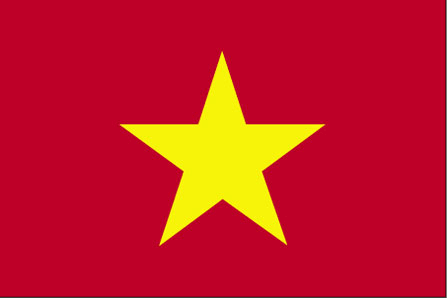To help inspire or plan your trip to Vietnam, some of its major attractions
for travellers are shown below, including some of the best natural, historical, cultural and adventure sites in the country.
These include all of UNESCO World Heritage Sites for Vietnam which represent the best
of the world's cultural and natural heritage.
Click on the icons below to focus on specific types of features
(click again to return to all).
|
|
|
|
|
|
|
|
|
|
|
|
 |
|---|---|---|---|---|---|---|---|---|---|---|---|
| Natural | History | Wildlife | Trekking | Cities | Religious Monument | Boat Journey | Rail Journey | Diving | Cultural | Adrenaline | UNESCO WHS |
Cultural attractions in Vietnam
| Hanoi | |
|---|---|
Hanoi combines the bustle and pace of a capital city with an old world charm and nostalgia from its French colonial past. Characterised by wide boulevards, faded colonial buildings and tree-lined lakes, Hanoi is a wonderful city for strolling and soaking up the atmosphere. In particular, the maze-like Old Quarter between Hoan Kiem Lake and the Red River invites exploration of its narrow streets and myriad of shops. Other attractions include the Temple of Literature, Vietnam's oldest educational establishment, the colonial architecture of the Presidential Palace, the One Pillar Pagoda, Ho Chi Minh’s Mausoleum and the infamous Hoa Lo Prison, also known as the Hanoi Hilton. Also worth checking out are the famous water puppet theatres for a truly Vietnamese experience. | |
| Sapa | |
|---|---|
Sapa is a hilltown northwest of Hanoi founded by the French as a retreat from the heat and humidity of the plains. Located at 1000 metres in the mountainous terrain of the Tonkinese Alps, it's an area of stunning natural beauty and perfect for exploring on foot or motorbike. Local villages inhabited by Vietnamese and minority tribes such as the Black Hmong, Tay and Red Dzao ensure some fascinating cultural interactions. It's a perfect region for trekking, either through the hills and villages or, for the more ambitious, to scale Mount Fansipan, at 3143 metres the highest peak on the Indochina peninsula. | |
| Mau Chau | |
|---|---|
Mau Chau is a village in the Hoa Binh province 135 kilometres from Hanoi. Located within a verdant valley, the area has stunning scenery and is an excellent spot for trekking. The region is home to Thai minority tribes such as the Hmong and home stays in the village will allow you to appreciate the customs and culture of these peoples. | |
| Mekong Delta | |
|---|---|
The Mekong River originates in the Tibetan Plateau and flows through China, Burma, Laos and Cambodia before reaching Vietnam and splitting into many waterways and channels to form the Mekong Delta. The Delta, home to about 20 million people, is one of the most fertile areas on earth, known as Vietnam's rice bowl and where many of its tropical fruits are grown. The region is best explored on boat and travelling along the canals, rivers and backwaters allows you to appreciate the beauty of the area and understand the lives of the local people. You will pass rice fields, villages of stilted houses, local markets (the floating market at Cai Be is famous) and see the cottage industries of the villagers. | |


